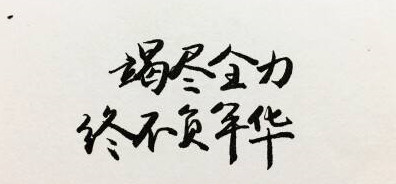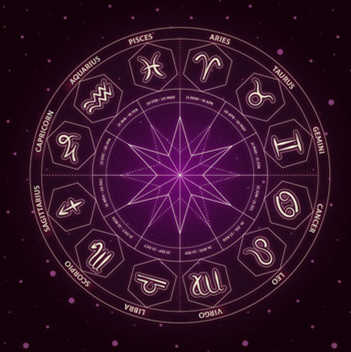 摘要:
初一英语总结初一年级(上)英语知识点梳理【知识梳理】I.重点短语1.Sitdown2.onduty3.i nEnglish4.haveaseat5.athome6.looklike...
摘要:
初一英语总结初一年级(上)英语知识点梳理【知识梳理】I.重点短语1.Sitdown2.onduty3.i nEnglish4.haveaseat5.athome6.looklike... 初一英语总结
初一年级(上)英语知识点梳理
【知识梳理】
I. 重点短语
1. Sit down
2. on duty
3. in English
4. have a seat
5. at home
6. look like
7. look at
8. have a look
9. come on
10. at work
11. at school
12. put on
13. look after
14. get up
15. go shopping
II. 重要句型
1. help sb. do sth.
2. What about…?
3. Let's do sth.
4. It's time to do sth.
5. It's time for …
6. What's…? It is…/ It's…
7. Where is…? It's….
8. How old are you? I'm….
9. What class are you in? I'm in….
10. Welcome to….
11. What's …plus…? It's….
12. I think…
13. Who's this? This is….
14. What can you see? I can see….
15. There is (are) ….
16. What colour is it (are they)? It's (They're)…
17. Whose …is this? It's….
18. What time is it? It's….
III. 交际用语
1. Good morning, Miss/Mr….
2. Hello! Hi!
3. Nice to meet you. Nice to meet you, too.
4. How are you? I'm fine, thank you/thanks. And you?
5. See you. See you later.
6. Thank you! You're welcome.
7. Goodbye! Bye!
8. What's your name? My name is ….
9. Here you are. This way, please.
10. Who's on duty today?
11. Let's do.
12. Let me see.
IV. 重要语法
1. 动词be的用法;
2. 人称代词和物主代词的用法;
3. 名词的单复数和所有格的用法;
4. 冠词的基本用法;
5. There be句型的用法.
【名师讲解】
1. in/on
在表示空间位置时,in表示在某个空间的范围以内,on表示在某一个物体的表面之上.例如:
There is a bird in the tree. 树上有只鸟.
There is a picture on the wall. 墙上有张图.
2. this/that/these/those
(1)this常常用来指在时间、地点上更接近讲话人的人和事,these是this的复数形式.that常常用来指在时间、地点上离讲话人更远一点的人和事,those时that的复数形式.例如:
You look in this box and I'll look in that one over there.你看看这个盒子,我去看那边的那个盒子.
I want this car, not that car. 我想要这辆小汽车,不是那一辆.
Take these books to his room, please. 请把这些书拿到他房间去.
This is mine; that's yours. 这个是我的,那个是你的.
These are apples; those are oranges. 这些是苹果,那些是橘子.
(2)在打电话的用语中,this常常指的是我,that常常指的是对方.例如:
This is Mary speaking. Who's that? 我是玛丽.你是谁?
3. There be/ have
There be "有",其确切含意为"某处或某时存在某人或某物."其结构是:There be + 某人或某物 + 表示地点或时间的状语.There be 后面的名词实际上是主语,be 动词的形式要和主语在数上保持一致,be动词后面的名词是单数或不可数名词时用is,名词是复数时用are.例如:
(1) There is a big bottle of coke on the table. 桌上有一大瓶子可乐.
(2) There is a doll in the box. 那个盒子里有个娃娃.
(3) There are many apples on the tree. 那树上有许多苹果.
总之,There be结构强调的是一种客观存在的"有".have表示"拥有,占有,具有",即:某人有某物(sb. have / has sth.).主语一般是名词或代词,与主语是所属关系.例如:
(4) I have two brothers and one sister.我有两个兄弟,一个姐姐.
(5) That house has four rooms.那所房子有四个房间.
4. look/ see/ watch
(1)look 表示"看、瞧",着重指认真看,强调看的动作,表示有意识地注意看,但不一定看到,以提醒对方注意.,如:
Look! The children are playing computer games. 瞧!孩子们在玩电脑游戏.
Look! What's that over there? 看!那边那个是什么?
单独使用是不及物动词,如强调看某人/物,其后接介词at,才能带宾语,如:
He's looking at me.他正在看着我.
(2)see强调"看"的结果,着重的是look这个动作的结果,意思是"看到",see是及物动词,后面能直接跟宾语.如:
What can you see in the picture? 你能在图上看到什么?
Look at the blackboard. What did you see on it?看黑板!你看到了什么?
(3)watch"观看,注视",侧重于场面,表示全神贯注地观看、观察或注视某事务的活动,强调过程,常用于"看电视、看足球、看演出"等.如:
Yesterday we watched a football match on TV.昨天我们从电视上看了一场足球比赛.
4. put on/ / in
put on意为"穿上,戴上".主要指"穿上"这一动作, 后面接表示服装、鞋帽的名词.
in 是介词,表示"穿着"强调状态.在句中可以做定语、标语和状语.如:
It's cold outside, put on your coat. 外面冷,穿上你的外衣.
He puts on his hat and goes out. 他戴上帽子,走了出去.
The woman in a white blouse is John's mother.穿白色衬衣的那个妇女是John的妈妈.
5. house/ home/family
house :"房子",指居住的建筑物; Home: "家",指一个人同家人共同经常居住的地方; Family: "家庭","家庭成员".例如:
Please come to my house this afternoon. 今天下午请到我家来.
He is not at home. 他不在家.
My family all get up early. 我们全家都起得很早.
6. fine, nice, good, well
四者都可用作形容词表示"好"之意,但前三者既可作表语又可作定语,而后者仅用作表语.主要区别在于:
(1) fine指物时表示的是质量上的"精细",形容人时表示的是"身体健康",也
可以用来指"天气晴朗".例如:
Your parents are very fine. 你父母身体很健康.
That's a fine machine. 那是一台很好的机器.
It's a fine day for a walk today. 今天是散步的好时候.
(2)nice主要侧重于人或物的外表,有"美好","漂亮"的意思,也可用于问候或赞扬别人.例如:
Lucy looks nice. 露西看上去很漂亮.
These coats are very nice. 那些裙子很好看.
Nice to meet you. 见到你很高兴.
It's very nice of you. 你真好.
(3)good形容人时指"品德好",形容物时指"质量好",是表示人或物各方面都好的普通用语.例如:
Her son is a good student. 她儿子是一个好学生.
The red car is very good. 那辆红色小汽车很好.
(4)well只可用来形容人的"身体好",但不能作定语,它也能用作副词作状语,多放在所
修饰的动词之后.例如:
I'm very well, thanks. 我身体很好,谢谢.
My friends sing well. 我的朋友们歌唱得好.【考点扫描】
中考考点在本单元主要集中在:
1. 动词be的用法;
2. 人称代词和物主代词的用法;
3. 名词的单复数和所有格的用法;
4. 冠词的基本用法;
5. There be句型的用法.
6. 本单元学过的词汇、短语和句型;
7. 本单元学过的日常交际用语.
考试形式可以是单项填空、完型填空、短文填空、完成句子.
初一年级(下)英语知识点梳理
【知识梳理】
I. 重点短语
1. a bottle of
2. a little
3. a lot (of)
4. all day
5. be from
6. be over
7. come back
8. come from
9. do one's homework
10. do the shopping
11. get down
12. get home
13. get to
14. get up
15. go shopping
16. have a drink of
17. have a look
18. have breakfast
19. have lunch
20. have supper
21. listen to
22. not…at all
23. put…away
24. take off
25. throw it like that
26. would like
27. in the middle of the day
28. in the morning / afternoon/ evening
29. on a farm
30. in a factory
II. 重要句型
1. Let sb. do sth.
2. Could sb. do sth.?
3. would like sth.
4. would like to do sth.
5. What about something to eat?
6. How do you spell …?
7. May I borrow…?
III. 交际用语
1. —Thanks very much!
—You're welcome.
2. Put it/them away.
3. What's wrong?
4. I think so.
I don't think so.
5. I want to take some books to the classroom.
6. Give me a bottle of orange juice, please.
Please give it / them back tomorrow. OK.
9. What's your favourite sport?
10. Don't worry.
11.I'm (not) good at basketball.
12. Do you want a go?
13. That's right./ That's all right./ All right.
14. Do you have a dictionary / any dictionaries?
Yes, I do. / No, I don't.
15. We / They have some CDs.
We / They don't have any CDs.
16. ---What day is it today / tomorrow?
---It's Monday.
17. ---May I borrow your colour pens, please?
---Certainly. Here you are.
18. ---Where are you from?
---From Beijing.
19. What's your telephone number in New York?
20. ---Do you like hot dogs?
---Yes, I do. ( A little. / A lot. / Very much.)
---No, I don't. ( I don't like them at all.)
21. ---What does your mother like?
---She likes dumplings and vegetables very much.
22. ---When do you go to school every day?
---I go to school at 7:00 every day.
23. ---What time does he go to bed in the evening?
---He goes to bed at 10:00.
IV. 重要语法
1.人称代词的用法;
2. 祈使句;
3. 现在进行时的构成和用法;
4.动词have的用法;
5.一般现在时构成和用法;
6.可数名词和不可数名词的构成和用法
【名师讲解】
1. That's right./ That's all right./ All right.
That's right意为"对的",表示赞同对方的意见、看法或行为,肯定对方的答案或判断.例如:
"I think we must help the old man.""我想我们应该帮助这位老人."
"That's right."或 "You're right.""说得对".
That's all right.意为"不用谢"、"没关系",用来回答对方的致谢或道歉.例如:
"Many thanks." "That's all right."
"Sorry. It's broken." "That's all right."
All right.意为"行了"、"可以",表示同意对方的建议或要求.有时还可以表示"身体很好"
"Please tell me about it." "请把此事告诉我."
"All right.""好吧."
Is your mother all right?你妈身体好吗
2. make/do
这两个词都可以解释为"做",但含义却不同,不能混用.make指做东西或制东西,do指做一件具体的事.
Can you make a paper boat for me? 你能为我做个纸船吗?
He's doing his homework now.他正在做他的作业.
3. say/speak/talk/tell
say:是最口语化的最普通的一个词,意为"说出"、"说道",着重所说的话.如:
"I want to go there by bus" , he said . 他说,"我要坐汽车到那里去."
Please say it in English .请用英语说.
speak : "说话",着重开口发声,不着重所说的内容,一般用作不及物动词 (即后面不能直接接宾语 ) .如:
Can you speak about him? 你能不能说说他的情况?
I don't like to speak like this. 我不喜欢这样说话.
speak 作及物动词解时,只能和某种语言等连用,表达在对话中恰当使用词汇的能力.如:
She speaks English well.她英语说得好.
talk : 与 speak 意义相近,也着重说话的动作,而不着重所说的话,因此,一般也只用作不及物动词,不过,talk 暗示话是对某人说的,有较强的对话意味,着重指连续地和别人谈话.如:
I would like to talk to him about it . 我想跟他谈那件事.
Old women like to talk with children.老年妇女喜欢和孩子们交谈.
tell : "告诉",除较少情况外,一般后面总接双宾语.如:
He's telling me a story.他在给我讲故事.
tell a lie 撒谎
tell sb. to do sth. /tell sb. not to do sth.
Miss Zhao often tells us to study hard.
4. do cooking/ do the cooking
do cooking 作"做饭"解,属泛指.do the cooking 特指某一顿饭或某一家人的饭.cooking为动名词,不能用作复数,但前面可用 some, much修饰.从do some cooking可引出许多类似的短语:
do some washing 洗些衣服
do some shopping 买些东西
do some reading 读书
do some writing 写些东西
do some fishing 钓鱼
从以上短语可引申出另一类短语,不能用some, much或定冠词.
go shopping 去买东西
go fishing 去钓鱼
go boating 去划船
go swimming 去游泳
5. like doing sth./ like to do sth.
like doing sth. 与like to do sth. 意思相同,但用法有区别.前者强调一般性的爱好或者表示动作的习惯性和经常性;后来表示一次性和偶然性的动作.例如:
He likes playing football, but he doesn't like to play football with Li Ming.
他喜欢踢足球,但是他不喜欢和李明踢.
6. other/ others/ the other/ another
other表其余的,别的,
Have you any other questions?你还有其他问题吗?
others 别的人,别的东西
In the room some people are American, the others are French.在屋子里一些人是
美国人,其他的是法国人.
the other表另一个(二者之中)one…,the other…
One of my two brothers studies English, the other studies Chinese.
我两个哥哥中的一个学习英文,另一个学中文.
another表三者以上的另一个,另一些
There is room for another few books on the shelf.书架上还可以放点书.. in the tree/ on the tree
in the tree 与 on the tree.译成中文均为"在树上"但英语中有区别.in the tree表示某人、某事(不属于树本身生长出的别的东西)落在树上,表示树的枝、叶、花、果等长在树上时,要使用on the tree.如:
There are some apples on the tree. 那棵树上有些苹果.
There is a bird in the tree. 那棵树上有只鸟.
8. some/ any
(1)some和 any既可修饰可数名词,也可修饰不可数名词.但有以下两点需要注意.
some常用于肯定句中,any常用于否定句和疑问句中.如:
There is some water in the glass.
Is there any water in the glass?
There isn't any water in the glass.
(2)在说话者希望得到肯定答复的一般疑问句中,或在表示请求,邀请的疑问句中,我们依然用some.如:
Would you like some tea?
9. tall/ high
(1)说人,动物,树木等有生命的东西,主要用tall,不用high,例如
a tall woman 一个高个子妇女
a tall horse 一个高大的马
(2)说一个不与地面接触的人和物的高时,要用high,而不用tall,比如人站在桌子上时,飞机飞上天时,例如:
He is high up in the tree. 他高高地爬在树上.
The plane is so high in the sky. 飞机在空中这么高.
(3)指建筑物、山时要tall或high都可以,不过high的程度比tall高.
(4)high可作副词,tall不能.
(5)tall的反义词为short, high的反义词为low. 10. can/ could
(1) can表示体力和脑力方面的能力,或根据客观条件能做某种动作的"能力
".例如:
Can you ride a bike? 你会骑自行车吗?
What can I do for you? 要帮忙吗?
Can you make a cake?你会做蛋糕吗?
(2) can用在否定句和疑问句中时有时表示说话人的"怀疑""猜测"或不肯定.例如:
Where can he be?他会在什么地方呢?
Can the news be true?这个消息会是真的吗?
It surely can't be six o'clock already?不可能已经六点钟了吧?
You can't be hungry so soon,Tom,you've just had lunch.汤姆,你不可能饿得这么快,你刚吃过午饭.
What can he mean?他会是什么意思?
在日常会话中,can可代替may表示"允许",may比较正式.例如:
You can come in any time.你随时都可以来.
--- Can I use your pen?我能用你的钢笔吗?
--- Of course,you can.当然可以.
You can have my seat,I'm going now.我要走了,你坐我的座位吧.
(3) could
could 是 can的过去式,表示过去有过的能力和可能性(在否定和疑问句中).例如:
The doctor said he could help him.(能力)医生说他能帮助他.
Lily could swim when she was four years old.(能力)
当丽丽四岁的时候她就会游泳.
At that time we thought the story could be true.(可能性)
那时我们以为所说的可能是真的.
could可代替can表示现在时间的动作,但语气较为婉转.例如:
Could I speak to John,please?我能和约翰说话吗?
Could you?在口语中表示请求对方做事.例如:
Could you wait half an hour?请你等半个小时好吗?
Could you please ring again at six?六点钟请你再打电话好吗?
(4) can的形式
只有现在式can和过去式could两种形式.能表示一般现在和一般过去两种时态,有时也能表示将来.所有其他时态(包括将来时)须用be able to加动词不定式来表示.例如:
They have not been able to come to Beijing.
他们没有能到北京来.
11. look for/ find
look for 意为"寻找",而find意为"找到,发现",前者强调"找"这一动作,并不注重"找"的结果,而后者则强调"找"的结果.例如:
She can't find her ruler. 她找不到她的尺子啦.
Tom is looking for his watch,but he can't find it.汤姆正在寻找他的手表,但没能找到.12. be sleeping/ be asleep
be sleeping 表示动作,意思是"正在睡觉";be asleep 表示状态,意思是"睡着了".如:
---What are the children doing in the room? 孩子们在房间里做什么?
---They are sleeping.他们正在睡觉.
The children are asleep now.现在孩子们睡着了.
13. often/ usually/sometimes
often表示"经常",sometimes表示"有时候",在表示发生频率上often要高于usually,usually要高于sometimes.这三个词表示的是经常性,一般性的动作或情况,常与一般现在时连用,常位于主要谓语动词的前面,其他谓语动词(be动词,情态动词和助动词)的后面,有时也可位于句尾.如果要加强语气,则放在句首.
We usually play basketball after school.我们通常放学后打篮球.
Sometimes I go to bed early.有时,我睡觉很早.
He often reads English in the morning.他经常在早晨读英语.
14. How much/ How many
how much常用来询问某一商品的价格,常见句式是How much is / are…?
How much is the skirt? 这条裙子多少钱?
How much are the bananas? 这些香蕉多少钱?
how much后加不可数名词,表示数量,意为"多少",how many后加可数名词的复数形式.
How much meat do you want? 你要多少肉呀?
How many students are there in your class? 你们班有多少人?15. be good for/ be good to/ be good at
be good for 表示"对……有好处",而be bad for表示"对……有害";be good to表示"对……友好",而be bad to表示"对……不好"

;be good at表示"擅长,在……方面做得好",而be bad at表示"在……方面做得不好".
Doing eye exercises is good for your eyes.做眼保健203对你的眼睛有好处.
Eating too much is bad for you health.吃的太多对你的身体有害.
Miss Li is good to all of us.李老师对我们所有的人都很友好.
The boss is bad to his workers.这个老板对他的工人不好.
Li Lei is good at drawing, but I'm bad at it.李雷擅长画画,但是我不擅长.
16. each/ every
each 和every都有"每一个"的意思,但含义和用法不相同.each从个体着眼,every从整体着眼.each 可用于两者或两者以上,every只用于三者或三者以上.
We each have a new book.
我们每人各有一本新书.
There are trees on each side of the street.
街的两旁有树.
He gets up early every morning.
每天早晨他都起得早.
each可以用作形容词、副词和代词;every只能用作形容词.
Each of them has his own duty.
他们各人有各人的义务.
They each want to do something different.
他们每个人都想做不同的事情.
17. 一般现在时/现在进行时
一般现在时表示经常性的或习惯性的动作或存在的状态,也表示说话者的能力,还有自然现象;而现在进行时表示正在进行或发生的动作(构成方式为am/is /are/+doing).
I do my homework in the evening.
我在晚上做作业.
I'm doing my homework now.
我现在正在做作业.
现在进行时常与now, these days, at the moment 或Look, listen等词连用;而一般现在时常与often, always, sometimes, usually, every day, in the morning, on Mondays等连用.
We often clean the classroom after school.
我们经常放学后打扫教室.
Look! They are cleaning the classroom .
看!他们正在打扫教室呢.
初一英语上册知识点归集指导?
想这些仔细的解释和讲解在《直播课堂》的辅导书上是都有的,如知识要点的讲解有概念,如语文的讲解:作者啊,文章的背景啊在这本辅导书上都是可以见到的,用于询问某件事或活动发生的频率《直播课堂》的初一英语上册的重点指导很详细.就那一课文章来说吧,how often do you exercise?
这是一篇课文的题目,看看how often 在《直播课堂》的讲解上,是"多久一次",悬疑问副词,放在首句.放在课本上的还有频率的表达方式及用法.加上语法热播,每一课:she often plays the piano after supper. 意思是 她晚饭后经常弹钢琴、还有语法的例子.像这样的辅导书就是最好的辅导书类型
初一,初二,初三,英语语法知识点大全及例句谁能提供呀?谢谢呀
英语常用句型
1. 否定句型
1) 一般否定句
I don't know this. No news is good news.
There is no person (smoke)/not a person/not any person (smoke) in the house.
2)特指否定
He went to his office, not to see him.
I am sorry for not coming on time.
I don't think/believe/suppose/feel/imagine you are right.
3)部分否定
All the answers are not right//All is not gold that glitters
I don't know all of them.//I can't see everybody/everything.
Both of them are not right.
4)全体否定
None of my friends smoke.//I can see nothing/nobody.
Neither of them is right.//Nothing can be so simple as this.
5) 延续否定
You didn't see him, neither/nor did I.
You don't know, I don't know either.
He doesn't know English, let alone/to say nothing of/not to speak of (更不用说) French.
6) 半否定句
We seldom/hardly/scarcely/barely hear such fine singing.
I know little English. I saw few people.
7) 双重否定
You can't make something out of nothing.//What's done cannot be undone.
There is no sweet without sweat.//No gain without pains.
I can't help /keep/ laughing whenever I hear it.
No man is so old but (that) he can learn.
8)排除否定
Everyone is ready except you.//He did nothing but play.
But for your help, I couldn't do it.
9)加强否定
I won't do it at all.//I can't see it any more.//He is no longer a boy.
2. 判断句型
1) 一般判断句
It is important for us to learn English.
It is kind of you to help me sincere means honest.
The boy is called/named Tom.
We regarded/consider it as an honor.
2)强调判断
It is English that we should learn.//It is he who helped me a lot.
3)弱式判断
Your sentence doesn't sound/look/appear/feel right.
You look/seem as if/as thought you had been there before.
Maybe/Perhaps/ she is ill.
He is probably ill.//He is likely ill. //It is possible that he is late
4) 注释判断
He can remember so many English words, that is (to say) he is a living dictionary.(活字典)
5) 正反判断
That sounds all right, but in fact it is not.
6) 比较判断
It is more a picture than a poem.
7) 互斥判断
He or you are wrong. Either he is right or I am.
3. 祝愿祁使句式
1) 一般句式
Study hard and keep fit. Be brave! Don't be shy! Get out of here.
2)强语式
Do tell me. Never tell a lie.
3) 委婉祈使句
Please tell me the true. Would/Will/Won't do me a favor?
Would/Do you mind my smoking? What/How/ about going on foot?
4)建议祈使句
Let us go. Let us know the time. Don't let the fire out.
Let's not waste the time. You'd better start early.
Shall we listen to some music? Why don't you get something to drink?
Suppose/supposing you pick me up at about six?
I suggest we (should) take the train.
5)祝愿句
Success to you! //Wish you a good journey.
May you have a happy marriage. //Here's to your success!
Allow me to propose a toast to our friendship!
4. 感叹句型
How well he speaks! //How kind she is! //What a nice weather it is!
Here he comes! //Such is life! //Wonderful! // Help!
5. 疑问句型
1) 一般疑问句
Is he a doctor?//Do you the way to the station?
2)反意疑问句
He is a teacher, isn't he?//It is quite cheap, don't you think?
3) 特殊疑问句
What is the distance/width/size/population/temperature/fare?
Who is he? What is he?(干什么的)//What is he like? // How is he?
How do you like him? //What do you think of him?
What ever do you mean by saying this?
4)选择疑问句
He is a doctor or a nurse?
5)间接疑问句
Do you know how old he is? //Tell me if (whether) you like it.
What do you think/say/suppose I should do?
6. 数词句型
1) 表数目
It is exactly ten o'clock.//It is five miles away from here.
He is more than/over/ at least not less than 20.
He is under/at most/no more than 20.
2)表年月日
He was born on April 22 1994/in 1994 on the morning of Oct.1.
3)表年龄
He is 20 years old/years of age.//He is at the age of 10.
4)表倍数
It is four times that of last years.
This is four times as big (again) as that one.
This is four times bigger than that one.
The income is double what it was.
The output of coal was 200% greater than in 1998.
5)表计量
It is 10 meters long/wide/high.//It costs me 100 yuan.
I spent 10 hours to finish it.//It took me 10 days to finish it.
It is worth 100 yuan.
7. 关联指代句型
1)两项关连
I have two books, one is Chinese; the other English.
I have five books, one is Chinese; the others English.
To say is one thing, but/and/ to do is another.
One the one hand, I am your teacher, and on the other hand, I am also you friend.
Some like to play football, others are fond of basketball.
2)先后顺序
First/firstly, I wish good health, second/secondly success in your study, third/thirdly good luck in everything.
First stop, then look, finally cross.
At first/in the beginning/ he word hard. Later/Afterwards he is not so diligent.
3)修饰限制
This is the same book as I lost yesterday.
This is the same book that I lost yesterday.(同一本书)
Don't trust such a man as over praise you.
He/One/Those/They who should come failed to appear.
A man/A person/The one/Anyone/People who saw her liked her very much.
The day/time/moment will come when China is strongest in the world.
4) 两项连接
He can speak not only English but also French.
The book is both interesting and instructive.
It is neither cold nor hot.
Please either come in or go out.
The old worker has experience and knowledge as well.
5)加和关系
Besides literature, we have grammar and writing.
Apart from oxygen, there are some other gases in the air.
In addition to "if", there is many other conjunctions that can introduce conditional clauses.
I must go now, incidentally, if you want that book.
You seem to like tea, so do I.
8. 比较句型
1)等比句
He is as tall as I. // He is the same height as I.
She is no less diligent than he. The lab is no better than a cottage.
2) 差比句
I speak English worse than he does.//He is not so/as tall as I am.
Our knowledge is much inferior to their.
3) 极比句
He is the tallest of all in the class.
None/No one/ is so blind as those that won't see.
Nothing is so easy as this.
4)比例句
The more a man knows, the more he feels his ignorance(无知).
5) 择比句
He is taller than any other boy in the class
It is better late than never.//They would die than live as slaves
He prefers doing to talking//He prefers to do rather than to talk.
He prefers mathematics to English.//I'd rather stay here.
6)对比句
You think me idle, but on the contrary, I am busy.
They are working hard while you are wasting your time.
9. 比喻句型
We must work like him.//He behaves as his father does.
He speaks English as if/though he was a foreigner.
10. 条件假设句
1) 一般事实
If we succeed, what will the people say?
Suppose it rains, what shall we do?
Persevere(坚持) and you'll succeed.
2)虚拟条件句
If I were you, I would go.//If you had seen it, you would have been moved.
3)反条件句
Unless you try, you'll never succeed.//Don't move, or/else/otherwise I'll shot.
4)唯一条件句
If only I have another chance, I shall do better.
Only in this way can we learn English well.
So/As long as we don't lose heart, we'll succeed.
5)推论条件句
Since that is so, there is no more to say.
Now that you are grown up, you must stop this behavior.
11. 时间句型
1)一般时
When I see him, I'll tell him.
2) 表同时
You'll grow wiser as you grow older.
Work while you work, play while you play.
He worked, at the same/in the meantime he listened to the music.
3)限制时
Every/each time when I went to his house, he was out.
By the time that we got there, he was out.
4)交替时
Sometimes he sings, sometimes he dances.
At one time the baby cries, at another it talks.
5)先时
I stopped hem before he began to talk with me.
6)后时
I'll tell you after I finish it.
7)紧接时
As soon as I see him, I'll tell him.
Once you begin, you must continue.
The (very) moment/instant (that) I saw him, I recognized him.
On hearing the news, she bust into tears.
Hardly had I seen the light, when I heard a loud thundering.
8)延续时
I haven't seen him since I came here.
A friend is never know till/until a man have need.
12. 地点句型
1) 一般地点
Where have you been?
Where there is a will, there is a way.
2)方位
Hebei lies in the east of China.
Japan is lies to the east of China.
The house faces (to) the south.
He is sitting at the front of the classroom
He is standing in front of/before me.
He is sitting at the back of/behind me.
He is sitting in the back of/at the rear of the classroom.
He is sitting next to/besides me.
He is sitting close to/near me.
At the top of/On top of the shelf, there are some books.
He is sitting on the left/right.
The mountain you see to the right is the Purple Mountain.
13. 原因句型
He didn't go to school because he was ill.
Since we are all here, let's begin our meeting.
It might rain yesterday, for the ground was wet.
Now (that) we have finished the work, we can go home.
I am glad to meet you.
I am sorry that I hear that.
Thank you for your help.
That is why he failed to come.
He didn't come because of/on account of the weather.
He went out of curiosity.
I succeeded thanks to his help.
This failure is due to the fact they lack experience.
Owing to our joint efforts, the task was fulfilled.
What are studying English for?
For what reason did you choose this?
What's the point of asking his to do that?
How come you never
told me about it?
What with the wind and what with the rain, our walk was spoiled.
14. 目的句型
He stopped aside so that she could go in.
He sits in the front in order that he can see words clearly.
He gets up early so as to/in order to have time to do exercises.
He repeated it for fear that there should be any mistake.
15. 结果句型
It was very cold, so that the river froze.
They cost a lot of money, so/therefore we use them carefully.
He is such a good man that every one likes him.
He ran so fast that no one could catch him.
He hurried to the house only to find that it was empty.
I was caught in the rain. As a result, I had a bad cold.
16. 程度句型
How often do you write to your parents?
How long do you stay at home?
It is so beautiful that we all love it.
It is too big for you.
He is too excited to speak.
He is not old enough to know this.
The letter must be sent as soon as possible
You must work as hard as you can.
As far as I know, I can speak only English.
17. 让步句型
Though/Although he is rich, (yet/still) he doesn't show off.
Yang as he is, he know a lot of things.
Even if/though he succeeded, he was not proud.
No matter what you say, I'll still try to do it.
Keep calm, whatever happens.
In spite of this, we must go ahead with our plans.
Regardless of all the difficulties, we'll fight it out to the end.
18. 转折句型
I searched everywhere but could not find him.
You may go, only return quickly.
He is seriously ill, still there is hope of his recovery.
It looked like rain, however it was clear in the afternoon.
He is still young, yet he is high up in the position.
He didn't tell me the truth, I know it, though.
19. 省略句
I think/say/suppose/expect/believe/hope so.
Why not come earlier next time?
初一英语的所有知识点
我只有初一下学期的知识点 date of brith 出生日期;June is the sixth month of a year 六月十一年中的第六个月;Sunday is the first day of a week周日是一个周的第一天;What's the date today?今天是多少号?;What day is it today?今天星期几?;What's the name of your cat?=What't your cat's name?你的猫叫什么名字?;go to see a movie去看电影;often放在动词的前面.放在be动词、情态动词的后面.eg:He is often late for school.他上学经常迟到.;含有"thank"的句子变否定句的时候在"thank"的前面加don't或doesn't.;learn about学到、了解.;favorite=like beat;for the some reason由于相同的原因;speak后面跟语言,用什么语言来说.;say说话的内容;talk两个人的谈话,相互交流.;tell告诉;What can he do?他会做什么?;
初一英语复习资料详细
期末总复习-1
复习指导
1. Where are you from? 你来自哪里?
Where do you come from? 你来自哪里?
be from, come from这两个短语均表示"来自某地,是某地人"
e.g. Where is he from? 他来自哪里?
Some of my classmates are from Australia. 我的一些同学来自澳大利亚.
Is she from Japan? 她是日本人吗?
2. How do you like …? 你觉得…怎么样?
该句型动词like后可接表示人或物的词作宾语,意为"你觉得某人或某物怎么样?",表示询问对某人或某物的看法、印象,相当于What do you think of …?
e.g. –How do you like Andy? 你觉得安迪这个人怎么样?
--I don't think he is a good student. 我觉得他不是个好学生.
--How do you like your new house? 你觉得新居怎么样?
--I like it very much. 我非常喜欢.
3. 表示频率的时间副词:usually(通常,常常),always(总是),often(经常),sometimes(有时)等,在句子中常位于be动词或助动词和实义动词之间.
e.g. He often takes his dog to the park. 他经常带狗去公园.
She usually goes to school on foot. 她通常步行去学校.
I sometimes go shopping with Betty. 有时我和贝迪去逛街.
They are always late for class. 他们上课总是迟到.
4. --What does he/ she do? 他/她是做什么的?
--He/ She is a doctor. 他/她是一名医生.
该句型是针对某人的职业或身份询问的,表示"……是干什么的?",相当于What is he/ she? What is his/ her job?
表示职业的名词有:driver驾驶员,farmer农民,soldier士兵,b
初一英语语法归纳
给你一些仁爱七年级的语法与短语吧
1. I see. 我明白了.
2. I quit! 我不干了!
3. Let go! 放手!
4. Me too. 我也是.
5. My god! 天哪!
6. No way! 不行!
7. Come on. 来吧(赶快).
8. Hold on. 等一等.
9. I agree. 我同意.
10. Not bad. 还不错.
11. Not yet. 还没.
12. See you. 再见.
13. Shut up! 闭嘴!
14. So long. 再见.
15. Why not? 好呀! (为什么不呢?)
16. Allow me. 让我来.
17. Be quiet! 安静点!
18. Cheer up! 振作起来!
19. Good job! 做得好!
20. Have fun! 玩得开心!
21. How much? 多少钱?
22. I'm full. 我饱了.
23. I'm home. 我回来了.
24. I'm lost. 我迷路了.
25. My treat. 我请客.
26. So do I. 我也一样.
27. This way.这边请.
28. After you. 您先.
29. Bless you! 祝福你!
30. Follow me. 跟我来.
31. Forget it! 休想! (算了!)
32. Good luck! 祝好运!
33. I decline! 我拒绝!
34. I promise. 我保证.
35. Of course! 当然了!
36. Slow down! 慢点!
37. Take care! 保重!
38. They hurt. (伤口)疼.
39. Try again. 再试试.
40. Watch out! 当心.
41. What's up? 有什么事吗?
42. Be careful! 注意!
43. Bottoms up! 干杯(见底)!
44. Don't move! 不许动!
45. Guess what? 猜猜看?
46. I doubt it 我怀疑.
47. I think so. 我也这么想.
48. I'm single. 我是单身贵族.
49. Keep it up! 坚持下去!
50. Let me see. 让我想想.
51. Never mind. 不要紧.
52. No problem! 没问题!
53. That's all! 就这样!
54. Time is up. 时间快到了.
55. What's new? 有什么新鲜事吗?
56. Count me on. 算上我.
57. Don't worry. 别担心.
58. Feel better? 好点了吗?
59. I love you! 我爱你!
60. I'm his fan. 我是他的影迷.
61. Is it yours? 这是你的吗?
62. That's neat. 这很好.
63. Are you sure? 你肯定吗?
64. Do I have to 非做不可吗?
65. He is my age. 他和我同岁.
66. Here you are. 给你.
67. No one knows. 没有人知道.
68. Take it easy. 别紧张.
69. What a pity! 太遗憾了!
70. Any thing else? 还要别的吗?
71. To be careful! 一定要小心!
72. Do me a favor? 帮个忙,好吗?
73. Help yourself. 别客气.
74. I'm on a diet. 我在节食.
75. Keep in Touch. 保持联络.
76. Time is money. 时间就是金钱.
77. Who's calling? 是哪一位?
78. You did right. 你做得对.
79. You set me up! 你出卖我!
80. Can I help you? 我能帮你吗?
81. Enjoy yourself! 祝你玩得开心!
82. Excuse me, Sir. 先生,对不起.
83. Give me a hand! 帮帮我!
84. How's it going? 怎么样?
85. I have no idea. 我没有头绪.
86. I just made it! 我做到了!
87. I'll see to it 我会留意的.
88. I'm in a hurry! 我在赶时间!89. It's her field. 这是她的本行.
90. It's up to you. 由你决定.
91. Just wonderful! 简直太棒了!
92. What about you? 你呢?
93. You owe me one. 你欠我一个人情.
94. You're welcome. 不客气.
95. Any day will do. 哪一天都行.
96. Are you kidding? 你在开玩笑吧!
97. Congratulations! 祝贺你!
98. T can't help it. 我情不自禁.
99. I don't mean it. 我不是故意的.
100. I'll fix you Up. 我会帮你打点的.
101. It sounds great!. 听起来很不错.
102. It's a fine day. 今天是个好天.
103. So far, so good. 目前还不错.
104. What time is it? 几点了?
105. You can make it! 你能做到!
106. Control yourself! 克制一下!
107. He came by train. 他乘火车来.
108. He is ill in bed. 他卧病在床.
109. He lacks courage. 他缺乏勇气.
110. How's everything? 一切还好吧?
111. I have no choice. 我别无选择.
112. I like ice-cream. 我喜欢吃冰淇淋.
113. I love this game. 我钟爱这项运动.
114. I'll try my best. 我尽力而为.
115. I'm On your side. 我全力支持你.
116. Long time no see! 好久不见!
117. No pain,no gain. 不劳无获.
118. Well, it depends 噢,这得看情况.
119. We're all for it. 我们全都同意.
120. What a good deal! 真便宜!
121. What should I do? 我该怎么办?
122. You asked for it! 你自讨苦吃!
123. You have my word. 我保证.
124. Believe it or not! 信不信由你!
125. Don't count on me. 别指望我.
126. Don't fall for it! 别上当!
127. Don't let me down. 别让我失望.
128. Easy come easy go.来得容易,去得快.
129. I beg









